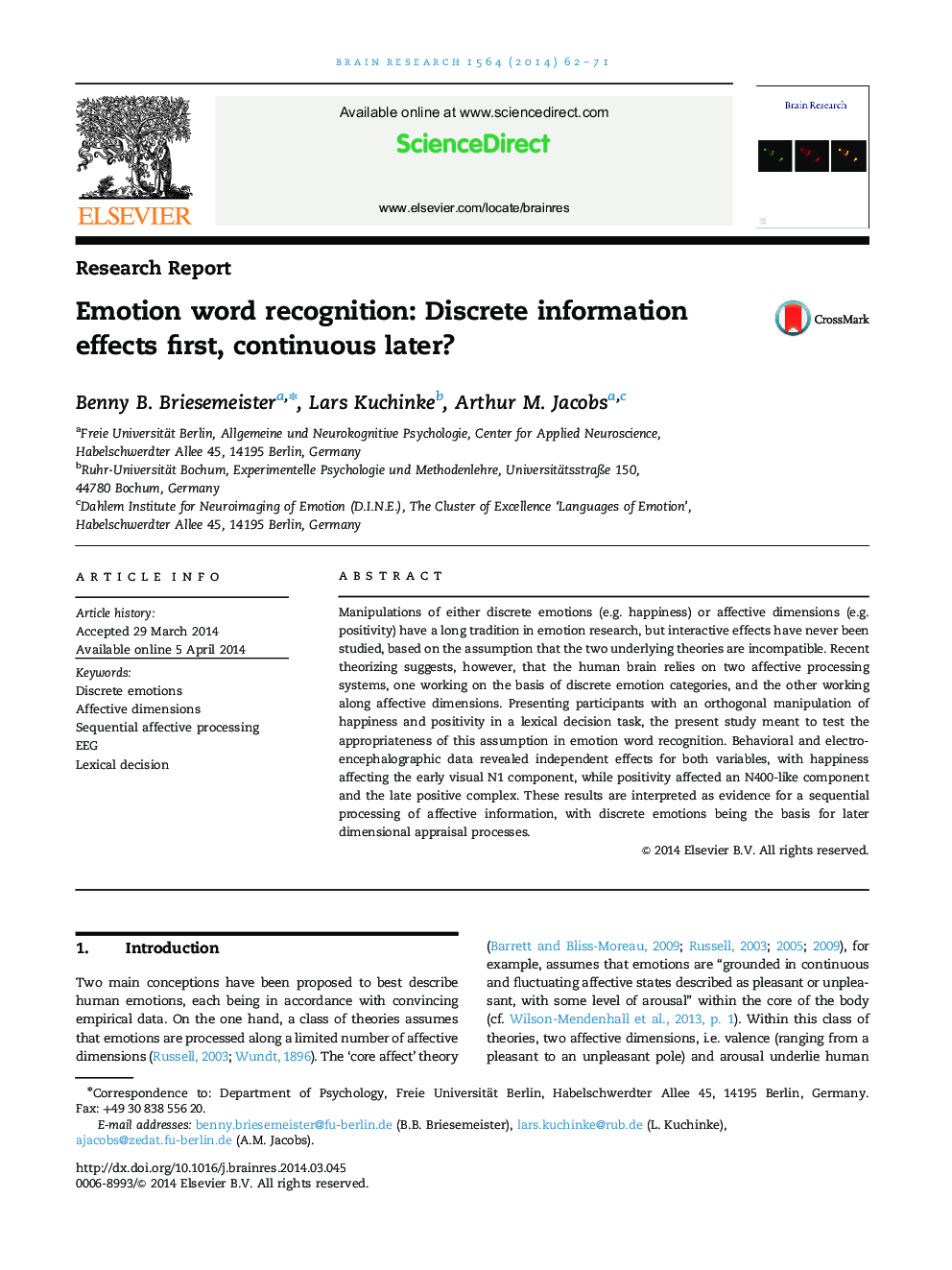| Article ID | Journal | Published Year | Pages | File Type |
|---|---|---|---|---|
| 4324276 | Brain Research | 2014 | 10 Pages |
•Happiness and/or positivity related words were presented in a lexical decision task.•Both conditions had independent behavioral and EEG effects.•Happiness words affected the N1 component known sensible to affective conditioning.•Positive words affected the N400 and the LPC, indexing prolonged processing.•These results support theories suggesting sequential affective processing.
Manipulations of either discrete emotions (e.g. happiness) or affective dimensions (e.g. positivity) have a long tradition in emotion research, but interactive effects have never been studied, based on the assumption that the two underlying theories are incompatible. Recent theorizing suggests, however, that the human brain relies on two affective processing systems, one working on the basis of discrete emotion categories, and the other working along affective dimensions. Presenting participants with an orthogonal manipulation of happiness and positivity in a lexical decision task, the present study meant to test the appropriateness of this assumption in emotion word recognition. Behavioral and electroencephalographic data revealed independent effects for both variables, with happiness affecting the early visual N1 component, while positivity affected an N400-like component and the late positive complex. These results are interpreted as evidence for a sequential processing of affective information, with discrete emotions being the basis for later dimensional appraisal processes.
